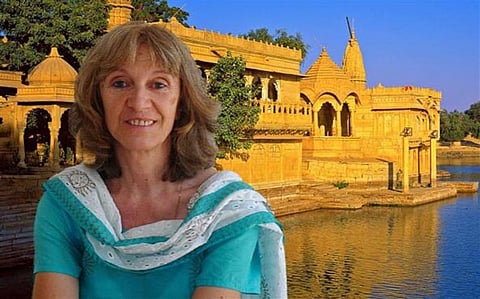
- Home
- NewsGram USA
- India
- न्यूजग्राम
- World
- Politics
- Entertainment
- Culture
- Lifestyle
- Economy
- Sports
- Sp. Coverage
- Misc.
- NewsGram Exclusive
- Jobs / Internships

August 11, 2017: It was the Indian Rishis who had answers to existential questions centuries before the discovery of scientific postulates. These Rishis successfully determined the age of the universe. They also knew that it was the Earth that orbits around the sun. Further, they also knew that there was more than just one sun, and that matter is made up of small units called atoms.
It had taken science a lot of years to validate the truth behind this ancient Indian wisdom.
The scientific conclusion that everything is "one energy" was long before preceded by the Indian thought that there is only one consciousness/ awareness.
Maria Wirth, in her new blog article, opines that science has rarely tried to investigate what Indian Rishis have to say. Science is a recent phenomenon as compared to religion and spirituality, and for the many findings in such short time, science has been too proud to investigate into Indian wisdom.
Thus, it is common for science to believe that these old theories that were postulated before science have little to nothing to offer. Scientists feel that these old theories have no role to play.
Maria Wirth explains how thirty years ago, ancient wisdom and modern science came together when nuclear physics came to the conclusion that everything is one energy.
However, there is a difference in the notion of what science says and what the Indian Rishis have said. Indian Rishis claim that the 'energy is aware of itself'. Whatever exists has emerged out of a singular awareness. The universe exists and is fully aware of it.
Modern science begs to differ. The energy that it talks about is 'dead energy' meaning it is not aware of itself. The humans that are 'aware' of their existence are manipulated by the brain into thinking so. This is a result of an accidental chemical reaction produced in our brains. This awareness dies when the brain dies.
For this distinction, Maria Wirth gives two possible reasons. Firstly, in the western societies, there was a period of renaissance and reformation when scientific knowledge was rapidly expanding. It led to a narrative that says science is opposed to religion. As religion believed that there was a God that watched over us, science opposes that.
The other reason is rather simple. "Awareness cannot be objectified," which violates scientific principles. The inability to objectively measure and explain awareness is beyond scientific comprehension, at least as of now.
The literature in India regarding awareness and consciousness is extensive. Atman, which refers to 'self' also implies individual experience and awareness. Brahman, on the other hand, refers to the absolute and universal awareness. Brahman is the absolute truth.
Atman is a capacity that resides within us. It makes us "feel alive."
The Mahavakyas in the Vedas claim that "atman is Brahman." Ultimately, atman and Brahman are one. This means that a person's individual awareness is their absolute awareness of the world.
If it is so, then indeed, science needs to move away from research and explore more of consciousness.
Wirth highlights the five components of the universe according to Indian scriptures. Name and form, which make up the first two components, are dynamic. They emerge out from the world of Maya. The other three; sat-chit-ananda (being-awareness-bliss) are constant. While science covers name, form and sat, it misses out on chit and ananda, i.e. the bliss that is derived from the awareness.
Modern science presents us with a rather bleak scenario, where there is basically no meaning in living, all is chance and with the death of the body, everything is finished. This nihilism is a popular belief among the intellectuals of the West.
– Summarised by Saksham Narula of NewsGram. Twitter: @Saksham2394
